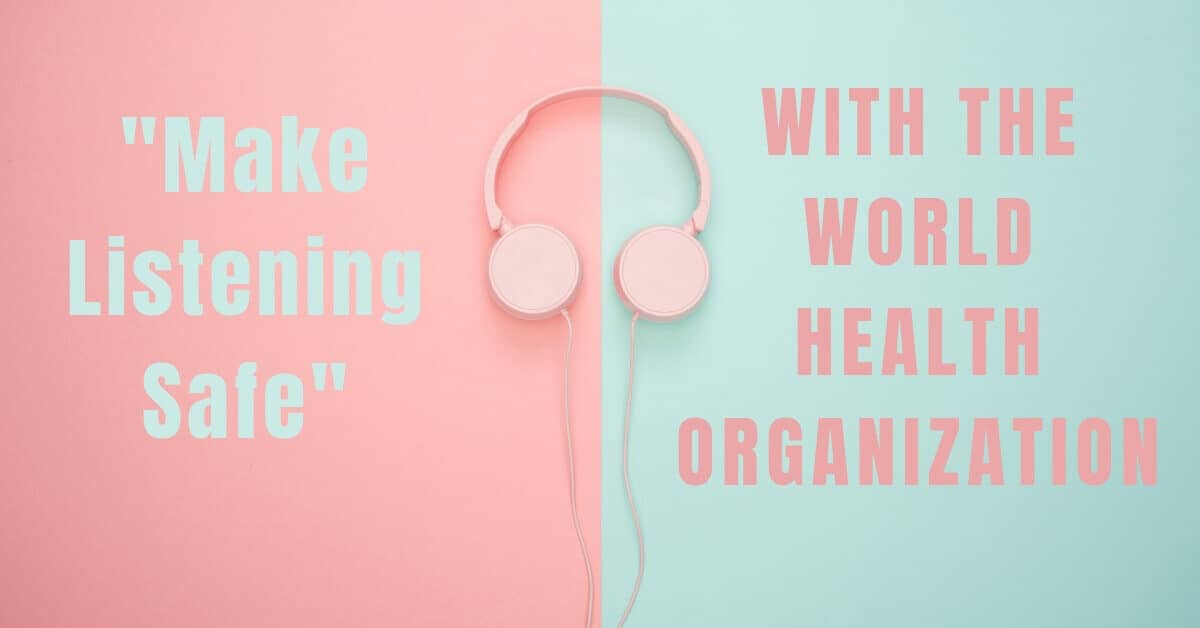
If you’re a parent with teenagers, you’re familiar with the sight of your kids with earbuds in their ears or draped around their necks. They can’t seem to live without their music, and are always plugged in. This might seem harmless, but they could be damaging their hearing, and may soon be facing a lifetime of hearing loss.
How Common is Hearing Loss in Teens and Young Adults?
The World Health Organization (WHO) reports that 1.1 billion teens and young adults worldwide risk hearing loss due to unsafe listening practices. Among young adults and teens, nearly 50% have unsafe listening practices, and have the volume far too loud on their personal listening devices such as mp3 players, smartphones, or other devices.
Young adults are also exposed to extremely loud sounds at pubs, bars, night clubs, and during other recreational activities like attending rock concerts or sporting events. Those who listen to music are often in the habit of listening for a prolonged period of time, and at a very high volume. While the ear can withstand a certain amount of noise, listening to loud sounds for many hours at a time does a lot of damage to the delicate cells in the inner ear.
Noise-Induced Hearing Loss
Noise-induced hearing loss affects millions of Americans, and is completely preventable. Unlike age-related hearing loss which is caused by the general wear and tear of daily life, noise-induced hearing loss is serious hearing loss that results from exposure to excessively loud noises. Personal listening devices can often be turned up to an extremely high volume that can damage hearing in less than an hour. And sporting events, rock concerts, or clubs are so loud then can lead to permanent hearing loss in just a few minutes. Have you ever left a concert with a ringing or buzzing in your ears? Did you feel like the sounds around you were muffled or faint? This temporary tinnitus or hearing loss is the result of dangerously loud sounds, and can be a warning sign of permanent hearing loss.
Make Listening Safe
The WHO has started a campaign to raise awareness about the dangers of noise-induced hearing loss, and wants to make listening safe for everyone. They report that globally over 43 million people ages 12 -35 years live with debilitating hearing loss, and will struggle to hear their whole lives. Hearing is one of our most important senses, and hearing loss impacts our social, educational, and professional development. If your teenager has hearing loss, it could have some serious implications for their ability to learn and grow.
How to Protect Your Hearing
If you’re going to a concert or for a night on the town, take your earplugs. Foam earplugs are easy to insert, and you can easily keep a pair in your bag for emergencies. If you have to yell to be heard by the person standing next to you, it’s too loud, and you need to wear your earplugs. For more complete hearing protection, custom earplugs provide the best in comfort and fit to keep your hearing safe.
To enjoy music with earbuds, invest in noise-cancelling headphones so you can hear clearly without being tempted to reach for the volume control, or turn up the volume too loud to drown out the sounds around you.
My Hearing Centers
At My Hearing Centers, we recommend the 60/60 rule. Always listen at 60% of the volume to ensure you’re not exposing yourself to dangerously loud sounds, and take a break every 60 minutes. Your ears need a chance to rest, and taking a few minutes away from the sound will protect your hearing.
If you or anyone in your family has hearing loss due to unsafe listening practices, visit us today at My Hearing Centers for a hearing assessment. We have hearing devices that are so tiny no one will ever notice you’re wearing them, and many come with full connectivity features. This means you won’t have to give up listening to the music you love, but can stream music and audio from your phone, or any other Bluetooth enabled device, right to your ears! Come see what we can do for you, and learn more about the ways you can make listening safe for you and your entire family.
